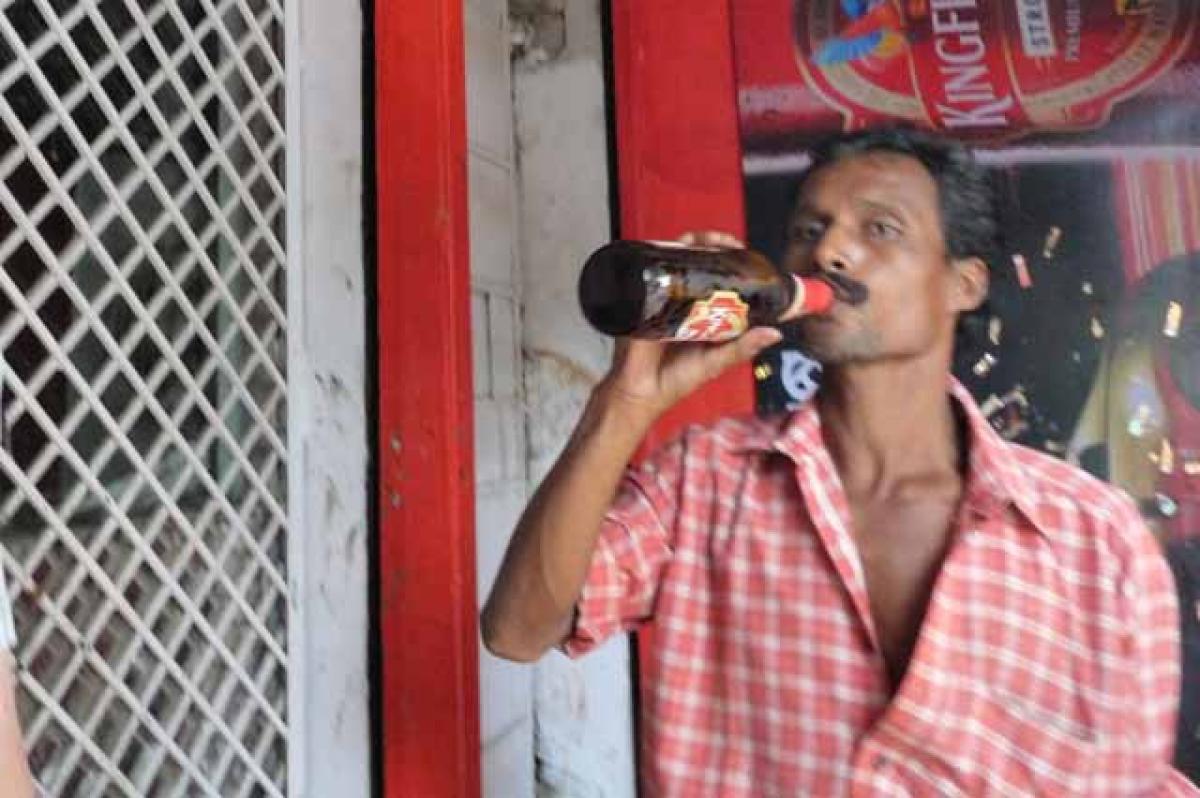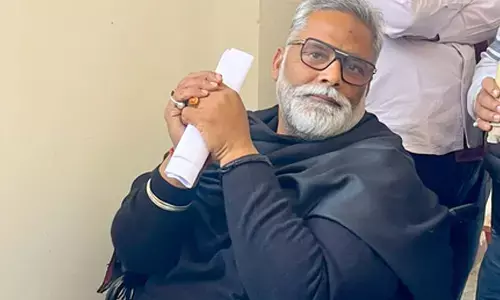Spurious liquor claims more lives

Spurious liquor claims more lives. Prohibition of Liquor is both a political & election issue in most states. While political parties sing the tune of prohibition while in the Opposition, they change the tune once in power.
As govts plan to raise excise revenue
Prohibition of Liquor is both a political & election issue in most states. While political parties sing the tune of prohibition while in the Opposition, they change the tune once in power. In most states, liquor contributes up to 20% of the total tax revenue of a state.
.jpg)
The tax revenue from liquor is rising by the year while the number of incidents of consumption of spurious liquor is also growing by the year. Close to 3000 people lost their lives during 2012-2014 because of the consumption of spurious liquor, according to a report in Factly, a website that boasts of ‘Making Public Data Meaningful”.

Alcohol (Liquor) is a very contentious issue in the country. A complete or partial ban on liquor is an election issue in most states. Tamil Nadu has seen violent protests over this issue recently and in Telangana, Opposition parties rallied against the government over the issue of cheap liquor forcing the government to abandon the idea.
While the state government coffers are rising on account of excise revenue, more & more people are falling prey to spurious liquor. Who controls liquor?
The production, manufacture, possession, transport, purchase and sale of liquor are specifically covered by Entry 8 of the State list of Seventh Schedule of the Constitution. In other words, the states have the exclusive power to regulate their production, manufacture, possession, transport, purchase and sale.
The Excise Revenue
A state government’s revenue from liquor is on account of the various taxes levied such as excise, sales tax, VAT, excise duty, import fee, etc. For most states, this is a very important revenue source. According to a news report, the revenue from liquor could be as high as 20% of the overall tax revenue of the states.
In Karnataka, it is more than Rs 12000 crore and in most other big states, it is upwards of Rs 10000 crore making it an important revenue source.
Did Prohibition (ban) work?
Various states have imposed Prohibition on alcohol at one point or the other. But none of these efforts were completely successful. Prohibition led to more corruption and greater demand for illicit/spurious liquor.
Consumption of illicit/spurious liquor
State governments are primarily responsible for controlling the sale of spurious liquor and prevent any such incidents of death due to consumption of spurious liquor. With the increase in the sale of licensed liquor, sale of spurious liquor is also thriving.
As per records available with the Ministry of Home Affairs, more than 3000 incidents of consumption of spurious liquor took place in the country resulting in the loss of 2927 lives. The number of such incidents in 2012 was 725.
While the number of incidents came down to 520 in 2013, they went up exponentially to 1797 in 2014, an increase of more than 250%. These cases resulted in 731 deaths in 2012, 497 deaths in 2013 and 1699 deaths in 2014.
Within states, Maharashtra accounts for the most number of deaths in these three years with 401 followed by Karnataka with 395 deaths. Uttar Pradesh with 271, Andhra Pradesh (including Telangana) with 253 and Madhya Pradesh with 229 make up the top five.
The state of Gujarat, where there is official Prohibition in place, had 177 deaths during this period. These 8 states make up for 70% of all the deaths. All these states make substantial tax revenue through manufacture & sale of liquor.
The only notable exception to this list is Tamil Nadu where not a single case has been registered in the last 3 years. In Tamil Nadu, the government manages the retail shops as well. Information collection on illicit liquor seized under the Excise Act has been started from 2014 onwards.
The NCRB publishes this seizure data in its Crime in India report. In 2014, a total of 2.85 crore liters of illegal liquor was seized by the state governments. Out of this, 41% was factory made, 32% was country made and 27% was the rest. Within states, the usual suspects are at the top.
Karnataka tops the charts with 77.7 lakh liters of seized illegal liquor followed by Madhya Pradesh, Uttar Pradesh & Andhra Pradesh. In both Rajasthan & West Bengal, more than 20 lakh liters of illegal liquor was seized while the number of deaths due to consumption of spurious liquor is low. In Telangana, close to a lakh liters of illegal liquor was seized in 2014.
By Rakesh Dubbudu










